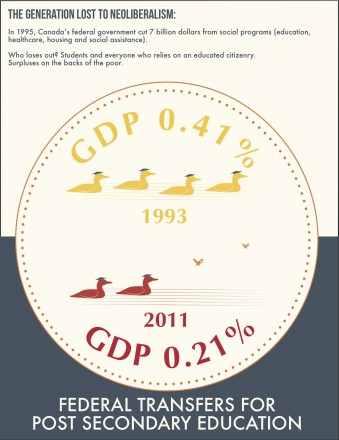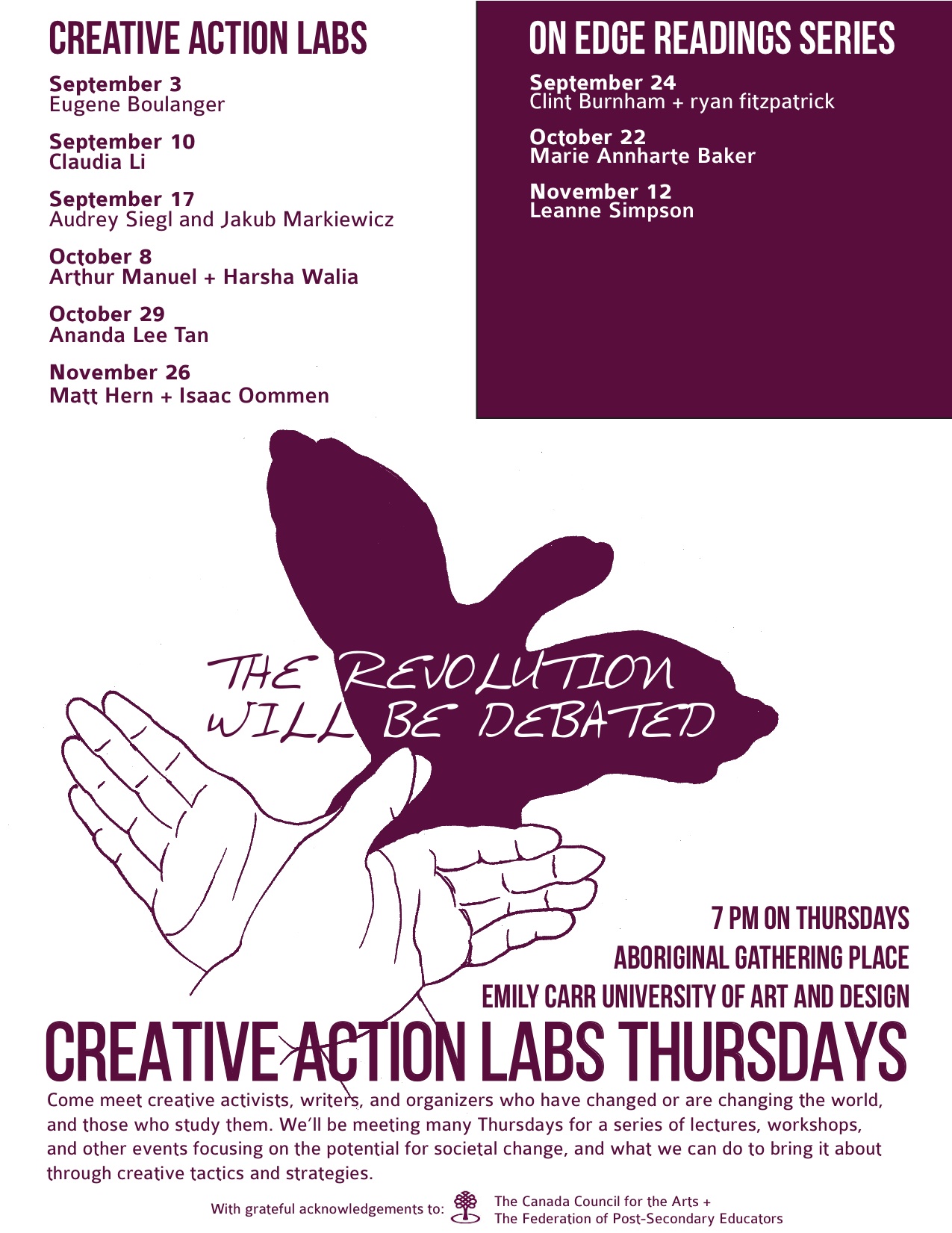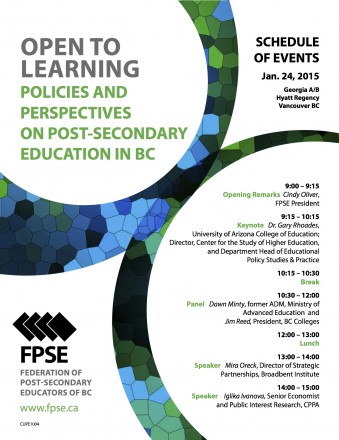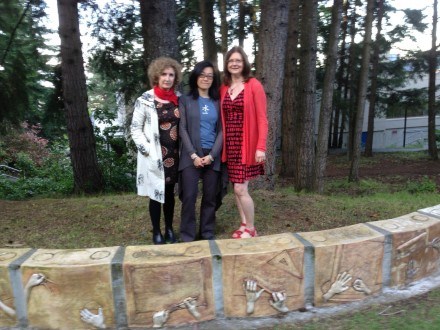
Education is a Public Good





Everyone who can, please get your vote ON!
Tickled by the Yes Men, we are happy to present the Creative Action Labs this fall.
We’ll hear from artists and activists who are changing the world, followed by workshops to delve into creative tactics and strategies.
If you’re interested in hearing stories from inspiring organizers and thinkers – come out on Thursday evenings! If you are interested in exploring the history of art as direct action and working with others to plan your own interventions – come on Fridays! Workshops will be facilitated by Sean Devlin, starting Sept 18 and running till Oct 23.
Sean Devlin 叶 世民 is a comedian, filmmaker and creative agitator who supports artists and activists in channeling their Trickster spirit. He has been worked as facilitator for communities, academic institutions and non-profits in the Netherlands, Germany, England, Poland, Lithuania, Turkey and Brazil. He currently serves as the Executive Director at ShitHarperDid.com and as an action coordinator and thought stylist at the Yes Men’s Yes Lab (NYU).
For the Friday workshops, we ask that people consider registering together as small working groups (approximately 2 to 6 people a group). Space is limited – please register by emailing creativeactionseries@gmail.com.
Thursday talks are free and open to the public. Here’s the schedule – we kick off the series with Eugene Boulanger on Sept 3:

Dear Faculty Members,
After bargaining sessions on June 2, 3, 4, 5, 8, 10, 11 and 12, we now have a tentative agreement for you to vote on. A summary and more details were emailed out to you.
We are holding a ratification information meeting at 11 am, June 30, in NB 245. Hope to see you there, and if you’re not available, please feel free to contact us with questions by email or telephone.
Thank you for your attention,
your Negotiations Committee
Rita Wong
Jane Slemon
David MacWilliam
Dennis Burke
Leah Squance

We would like to acknowledge the support of Berger-Marks Foundation in helping students and faculty work together on protecting the quality of and access to public post-secondary education. Students were able to participate in this conference thanks to the Berger-Marks Foundation.
We occasionally post news articles on our Facebook page, and encourage you to post links there if you have an article you’d like to share with colleagues. Posts could be about pedagogy, debates and issues in post-secondary education, or events that may be of interest to faculty…
In May 2014, Alex Phillips, Rita Wong, and Peg Campbell participated in the Federation of Post-Secondary Educators’ annual conference. Rita presented on a panel looking at what has happened at special purpose teaching universities (Capilano University, University of the Fraser Valley, Thompson Rivers University, Vancouver Island University, Kwantlen Polytechnic University, and Emily Carr University of Art + Design) since we were designated as such in 2008.

Photo credit: Leah Squance
ACCUTE offers a reality check into post-secondary education in Canada from the perspectives of contract academic faculty: http://accute.ca/2014/01/30/representing-the-new-faculty-majority/
This article in the Chronicle of Higher Education by Richard Moser, “Overuse and Abuse of Adjunct Faculty Members Threaten Core Academic Values,” gives a good overview of the American context, that is relevant for faculty in Canada to consider.
The following handout (building on CAUT’s work) offers some working definitions that may be helpful to consider:
Collegial Governance is defined in terms of the degree of autonomy members of a department or discipline can expect in participating in and determining every aspect and condition of their work: for example, meetings, workload, workload planning, academic planning, and so on.
The term turns on two elements:
“collegiality” which means the participation of faculty in governance structures.
Collegiality does not mean congeniality.
To be collegial, academic governance must:
(a) allow for the expression of a diversity of views and opinions,
(b) protect participants so that no individual is given inappropriate advantage (for example, due to power differentials) with respect to decisions, and
(c) ensure inclusiveness so that all who should be participating are provided the opportunity to do so.
Collegial governance depends on the participants being given, and being able to deliver, their share of the service workload.
“consultation” refers to the process whereby the person(s) consulting a person(s) is obligated to take into consideration the circumstances and interests of the person(s) being consulted, and, also, to ensure that these circumstances and interests are reflected in the determination made at the end of the process.
Consultation also refers to a formal meeting by which the consultation occurs around a specific agenda item(s) and whose procedure and outcome(s) are documented.
The Confederation of University Faculty Associations of BC (CUFA) has released an e-book called Academic Governance 3.0. It is worth a read for any faculty member seeking to think through the ways in which we come to make decisions as communities and learning organizations. When professor Cary Nelson recently spoke at SFU’s Institute for the Humanities, he identified shared governance, tenure and academic freedom as being crucial for the integrity and the future of post-secondary education.